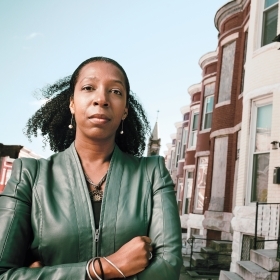Jennifer Hertz Levi ’85 was a math major at Wellesley, which isn’t how many lawyers get their start. But she followed her interest in advocating for the GLBT community all the way to law school—and beyond.
In 1998, Jennifer was the third attorney hired by GLBTQ Legal Advocates & Defenders (GLAD) in Boston. Now, almost 20 years later, she is director of GLAD’s Transgender Rights Project. Quite a bit has changed during that time. “When I started, you could count on one hand the favorable legal decisions for transgender people,” Jennifer says. “There were not recognized protections under federal law. There was one state in the nation that had a transgender-specific nondiscrimination law.” There are now nearly 20 states with expressed protections for transgender people, and case law has developed that recognizes protections for transgender people under federal nondiscrimination laws and federal educational nondiscrimination laws, she says.
Jennifer’s work has covered a wide range of legal issues for the transgender community, from employment discrimination to getting access to health care. “When I started this job, there was very little in the way of legal protections for people getting any kind of insurance coverage for gender-transition-related care,” Jennifer says. “I worked to help reverse the Medicare exclusion for coverage of gender-transition-related surgery.” She’s also worked on behalf of transgender youth to ensure equal protections in schools, as well as access to health care. And her extensive experience led her to assemble Transgender Family Law, a book that provides resources for attorneys working with transgender clients.
Although GLAD’s focus is on the six New England states, because of the depth of Jennifer’s knowledge in this arena she has worked in Washington, D.C., and helped other attorneys around the country. In fact, in addition to her litigation caseload, she also collaborates with state legislatures (she worked in Connecticut on a recently signed law that banned conversion therapy); she does education and outreach to attorneys and judges; and she’s a law professor at Western New England University. And when she’s not doing all that, Jennifer also helps out with cases heading to the U.S. Supreme Court.
Grimm v Gloucester County Public School Board had been set to be heard by the Supreme Court in a matter determining whether transgender students have the right to use the bathroom that conforms to their gender identity. “I’ve been working closely with the attorneys who are working on that case and spearheading a number of amicus briefs,” Jennifer says. But in March, the Supreme Court announced it was sending the case back to the Fourth Circuit Court of Appeals because of the current administration’s decision in February to pull the guidance that the Obama administration issued, which instructed schools to allow transgender students to use the bathrooms of their choice.
As one of her many duties, Jennifer issued a statement about the guidance withdrawal, calling it “a devastating step back for transgender students.” Although she has seen significant progress since she started this work almost 20 years ago, there is clearly more work to be done. “With the recent election, we’ve seen the potential to have many rights and protections cut back, so the work becomes even that much more pressing,” she says. “This political moment calls on all of us to redouble our efforts to protect those who are the most marginalized within and among our communities.”
Despite challenges and setbacks, Jennifer is still glad she found the right work for her. “It’s a gift to have the chance to do this kind of work. Even on a bad day,” she says, “it’s a good job.”








We ask that those who engage in Wellesley magazine's online community act with honesty, integrity, and respect. (Remember the honor code, alums?) We reserve the right to remove comments by impersonators or comments that are not civil and relevant to the subject at hand. By posting here, you are permitting Wellesley magazine to edit and republish your comment in all media. Please remember that all posts are public.